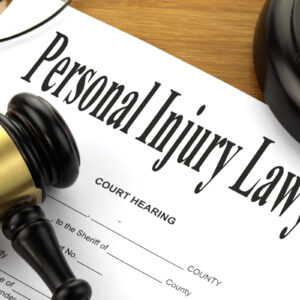Experiencing an accident that results in injuries is stressful enough. The last thing you need is to accidentally sabotage your chances of fair compensation. Far too many people unknowingly make mistakes that weaken their personal injury claims, leaving them with less than they deserve – or even nothing at all. This guide is designed to help you avoid becoming one of those statistics.
Recognizing the Signs You Need a Personal Injury Lawyer After an Accident
Before we dive into the common pitfalls, it’s crucial to recognize when you need professional help. Not every fender-bender requires a lawyer, but certain situations absolutely warrant a consultation. Ask yourself:
- Were your injuries serious? This goes beyond scrapes and bruises. Broken bones, head injuries, spinal damage, and internal injuries are all red flags. These injuries often require extensive medical treatment and can have long-term consequences.
- Is liability unclear? If the other party is denying responsibility, or if there’s conflicting evidence, you’ll want an experienced advocate on your side. Insurance companies may try to take advantage of you.
- Is the insurance company giving you the runaround? Are they delaying, downplaying your injuries, or making unreasonable offers? This is a classic tactic to frustrate you into accepting a lowball settlement. According to a 2023 study by the Insurance Research Council, claimants represented by attorneys typically receive settlements 3.5 times higher than those who represent themselves.
- Was a commercial vehicle involved? Accidents involving trucks, buses, or other commercial vehicles often have complex regulations and multiple parties involved.
- Did the accident result in a fatality or permanent disability? These cases are incredibly complex and require specialized legal expertise.
Pro Tip: Many personal injury lawyers offer free initial consultations. It costs you nothing to get a professional opinion on your case.
The Fatal Flaw: Top Personal Injury Case Common Mistakes to Avoid Immediately
These missteps can significantly damage your ability to recover the compensation you deserve. Avoid them like the plague:
- Talking Too Much (Especially on Social Media): This is perhaps the biggest mistake. Insurance adjusters are masters at twisting your words. Saying things like “I’m feeling better today” on social media can be used to minimize your injuries, even if you’re still in pain. Limit your conversations about the accident and your injuries to your doctor and your lawyer. Absolutely never post about the accident on social media.
- Delaying Medical Treatment: Putting off medical care is detrimental in two ways: it can worsen your injuries, and it creates doubt about the severity of your injuries. The insurance company will argue that if you were truly hurt, you would have sought immediate treatment.
- Giving a Recorded Statement Without an Attorney: Insurance adjusters will often ask for a recorded statement “to get your side of the story.” While it sounds harmless, they are looking for ways to undermine your claim. Politely decline and tell them to contact your attorney.
- Settling Too Soon: Desperation for money after an accident can lead people to accept the first offer the insurance company makes. This is almost always a mistake. You may not yet fully understand the extent of your injuries or the long-term impact they will have on your life. Don’t sign anything without consulting with an attorney.
- Not Following Doctor’s Orders: This is another way to undermine your credibility. If your doctor prescribes physical therapy, medication, or other treatment, make sure you follow through.
- Exaggerating Your Injuries: Honesty is paramount. Exaggerating your pain or the impact of your injuries will quickly be discovered and will damage your credibility.
Investigation Illusions: How Lack of Evidence Can Destroy Your Personal Injury Claim
Think of your personal injury claim as a puzzle. Evidence is the pieces. Without enough pieces, you can’t complete the picture and prove your case. Here’s how to gather and preserve those crucial pieces:
- Police Report: Obtain a copy of the police report as soon as possible. It contains vital information about the accident, including witness statements and the officer’s determination of fault.
- Photos and Videos: Take pictures or videos of the accident scene, vehicle damage, your injuries, and anything else that might be relevant. The more documentation, the better.
- Witness Information: Get the names and contact information of any witnesses to the accident. Their testimony can be invaluable.
- Medical Records: Keep detailed records of all medical treatment you receive, including doctor’s notes, bills, and therapy reports.
- Lost Wage Documentation: If you’ve missed work due to your injuries, gather documentation such as pay stubs, employment contracts, and letters from your employer.
- Preserve Evidence: Don’t repair your vehicle until it has been inspected and photographed. Keep all damaged property.
Case Study: In Smith v. Acme Trucking, the plaintiff’s case was significantly weakened because he failed to take photos of the accident scene and the damage to his vehicle. Acme Trucking was able to successfully argue that Smith’s injuries were not as severe as he claimed.
Documentation Disasters: Avoiding Mistakes in Gathering Crucial Information
Accurate and complete documentation is the backbone of a strong personal injury claim. Here’s what to avoid:
- Incomplete Medical Records: Ensure that your medical records accurately reflect the nature and extent of your injuries, the treatment you received, and any future medical needs. Review your records for errors and request corrections.
- Missing Wage Information: Failing to document lost wages can significantly reduce your potential compensation. Obtain pay stubs, tax returns, and a letter from your employer verifying your lost income.
- Forgetting About “Hidden” Costs: Don’t just track medical bills and lost wages. Document all expenses related to your injury, such as travel costs for medical appointments, over-the-counter medications, and assistance with household chores.
Negotiation Nightmares: Why Going It Alone Can Cost You
Trying to negotiate with an insurance company without legal representation is like bringing a knife to a gunfight. Insurance adjusters are trained negotiators whose primary goal is to minimize payouts.
- Understanding the Value of Your Claim: A personal injury lawyer can accurately assess the value of your claim, taking into account all factors such as medical expenses, lost wages, pain and suffering, and future medical needs. They understand how the law applies to your specific situation.
- Negotiation Tactics: Lawyers are skilled negotiators who know how to effectively argue your case and counter the insurance company’s tactics.
- Threat of Litigation: The insurance company knows that if you are represented by an attorney, you are more likely to file a lawsuit if they don’t offer a fair settlement. This gives your lawyer leverage in negotiations.
Avoid Personal Injury Case Mistakes: Your Ultimate Checklist
Use this checklist to stay on track and avoid common pitfalls that can damage your claim:
[ ] Seek medical attention immediately after the accident.
[ ] Follow your doctor’s treatment plan.
[ ] Report the accident to the police.
[ ] Obtain a copy of the police report.
[ ] Gather evidence from the accident scene (photos, videos, witness information).
[ ] Keep detailed records of all medical treatment and expenses.
[ ] Document lost wages and other financial losses.
[ ] Avoid discussing the accident on social media.
[ ] Do not give a recorded statement to the insurance company without an attorney.
[ ] Consult with a personal injury attorney as soon as possible.
[ ] Do not sign any settlement agreements without your attorney’s review.
[ ] Keep all communication with the insurance company in writing.
[ ] Review your medical records for accuracy.
[ ] Track all expenses related to your injury.
By following this guide and avoiding these common mistakes, you can significantly increase your chances of recovering the compensation you deserve and rebuilding your life after an accident. Remember, seeking professional legal advice is always the best course of action.




